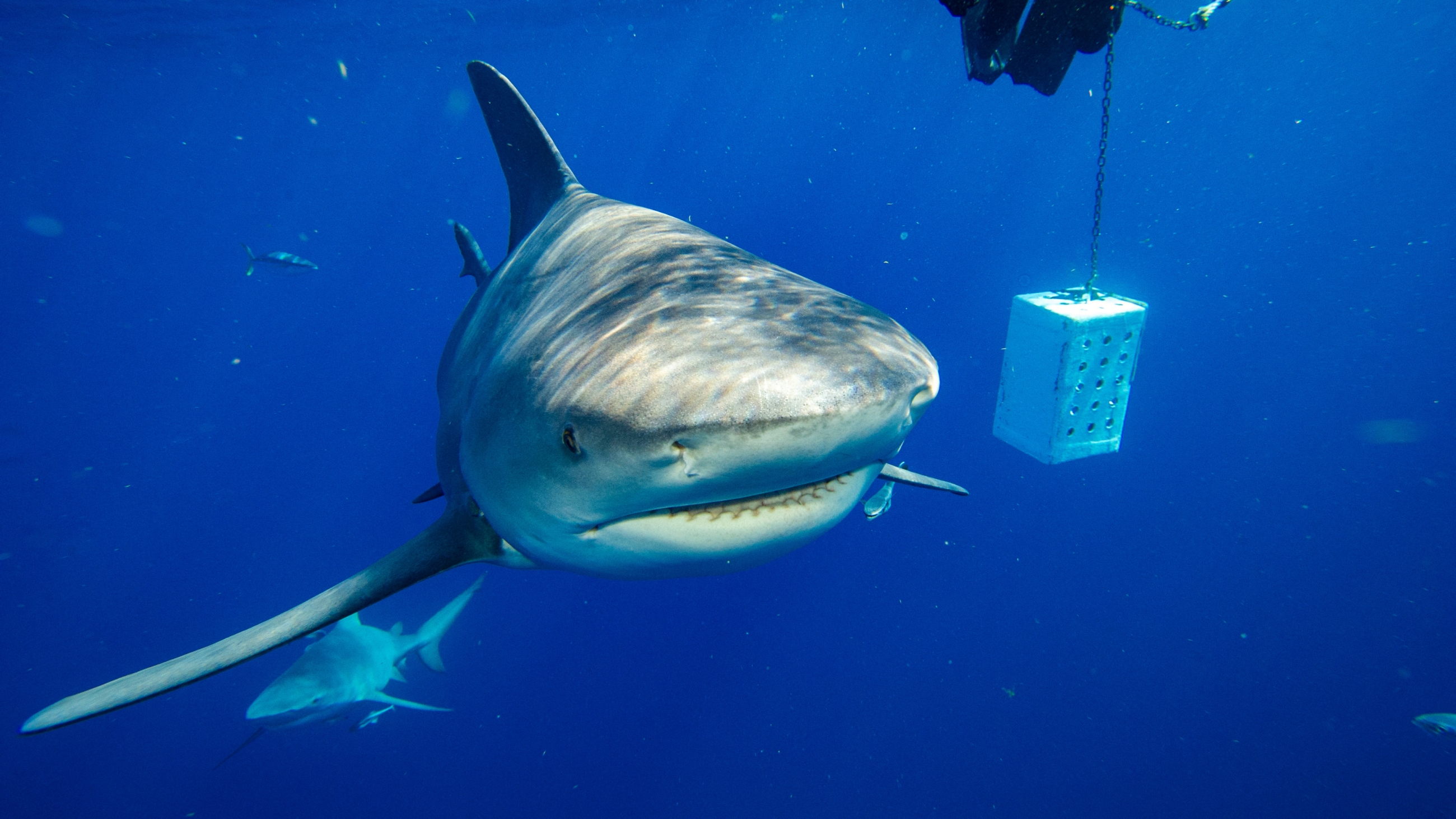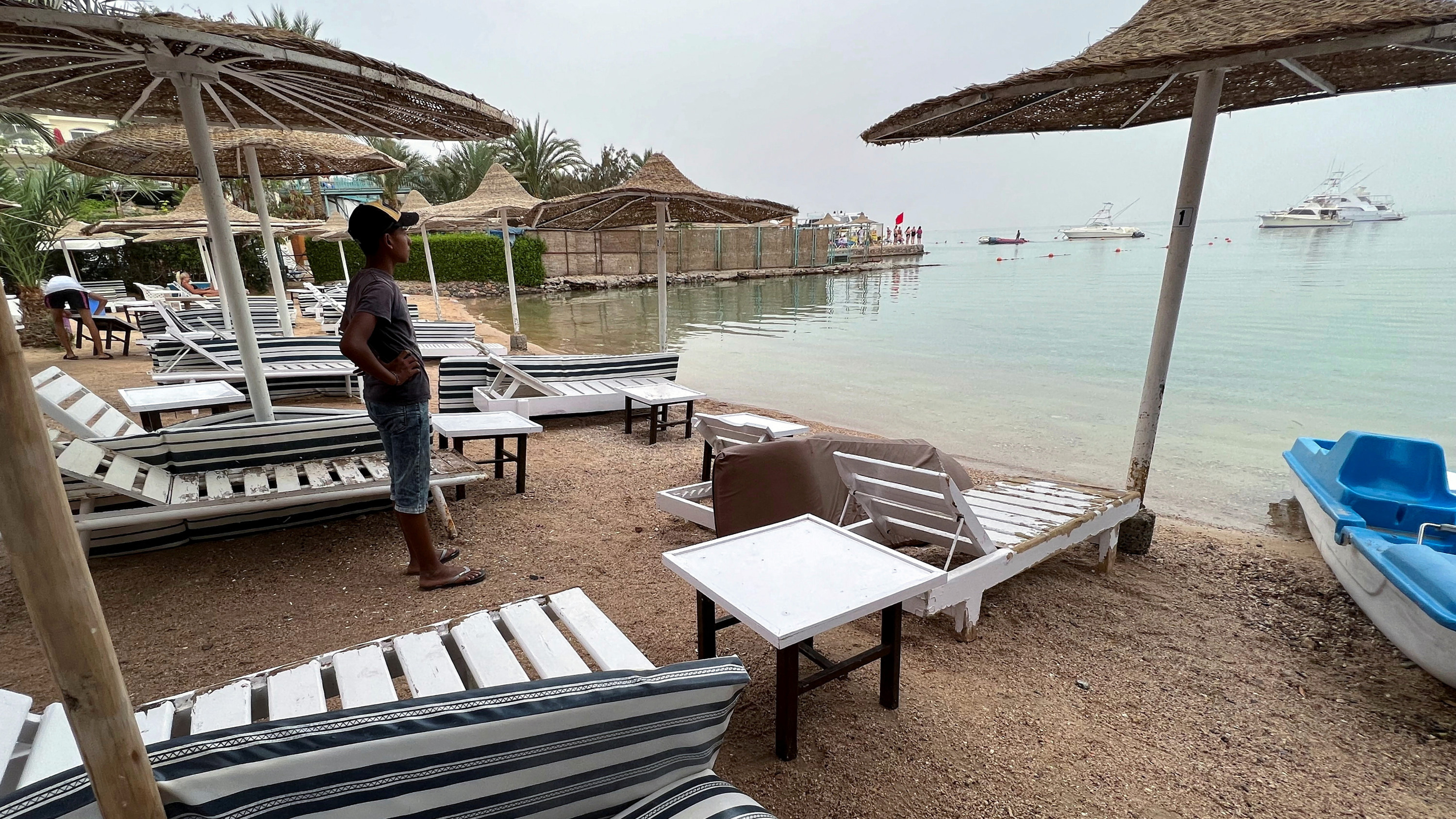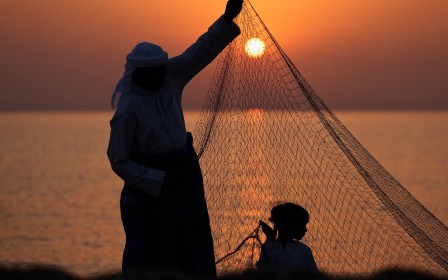Egypt sees spike in shark hunting after tourist mauled off coast

A new trend has spread among some Egyptians: shark hunting.
Since a tiger shark mauled a Russian tourist to death off the coast of the Red Sea resort of Hurghada last month, an increasing number of Egyptians are catching the fish and killing it.
Some even publicly boast about it.
"You see this shark here," a young man holding a small shark by the beach tells the camera.
"He tried to attack me at sea," he claims. "But no one can get the better of Egyptians."
New MEE newsletter: Jerusalem Dispatch
Sign up to get the latest insights and analysis on Israel-Palestine, alongside Turkey Unpacked and other MEE newsletters
The video is one of many shared recently on Egyptian social media, showing people bragging about catching sharks.
But the growing practice has ignited fears among experts of the irreparable damage it could cause to marine life off the Egyptian coast.
"Shark catching and killing devastates marine life," Ehab Hamdi, marine life advocate, told Middle East Eye. "There is a noticeable spike in this practice, which is shameful and dangerous."
Fear of shark attacks reigned among local and foreign vacationers in the aftermath of the killing of a 23-year-old Russian tourist in a shark attack in early June.
A few hours after the attack, local fishermen caught the same shark and savagely killed it, apparently to comfort panicking tourists and vacationers.
'Overfishing can put an end to the presence of some fish species, especially sharks'
- Sahar Mehana, marine life specialist
The shark will reportedly be mummified and put on display in a museum.
Nevertheless, the same incident stirred a wave of condemnation and warnings against the devastating effects of an unfettered onslaught on the sharks.
Some say it's part of a wider issue of violations against marine life in the country.
A local newspaper published a video earlier this month showing a fisherman gloating over his possession of a sea turtle.
A few days later, a marine life advocate published a photo of a fishmonger putting several small sharks for sale in the Red Sea city of Suez.
"This is something that leads to dangerous imbalances in marine ecosystems, given the fact that sharks are a basic component of these systems," Sahar Mehana, a marine life specialist at the National Institute of Oceanography and Fisheries, Egypt's main marine life watchdog, told MEE.
"Overfishing can put an end to the presence of some fish species, especially sharks," she added.
Authorities urged to act
Although shark attacks are rare off Egypt's coasts, the early June incident off Hurghada was not the first one.
In 2010, a shark killed a German woman swimming near the shore at the Red Sea resort town of Sharm el-Sheikh, inviting attention to the fact that Egyptian shores could have become within the reach of deadly sharks.
Last year, a Romanian and an Austrian were killed within three days in separate shark attacks off Hurghada.
At the time, local officials blamed the attacks on the dumping of dead animals in the sea by sailors travelling in the area, which attracted deadly sharks closer to shore.
But following the most recent incident, there have been growing calls urging authorities to take more measures to protect both tourists and marine life.
In the aftermath, the environment ministry said it would install monitoring devices to track the movement of sharks and prevent attacks on tourists.
Authorities also said they would work to prevent violations against marine creatures by locals.
In May, the governor of the Red Sea banned fishing charters and the sale of Red Sea fish and marine species in markets.
But according to lawmaker Mohamed al-Gabalawi, more is still needed to be done.
"I think environmental authorities need to work harder to prevent such violations," al-Gabalawi, who is also a member of the Committee on the Environment and Energy in the Egyptian parliament, told MEE.
Additionally, public perceptions about marine life need to be changed, according to marine life specialist Mehana.
Otherwise, the crackdown on violations by locals will remain mere ink on paper so long as there is not a real change in public attitudes.
"I think we are badly in need of spreading a new culture about the importance of protecting marine life and marine species," Mehana told MEE.
"Without this, official action [will not] do, and the violations will continue to happen."
Impact on tourism
Marine life, especially coral reefs, is a major attraction off Egypt's coasts, functioning as a magnet for a large number of tourists who travel to the country to dive in the Red Sea every year.
The tourism sector is an important foreign currency earner for Egypt, accounting for around 12 percent of the country's gross domestic product and employing around 9.5 percent of its workforce in 2018.
The sector was negatively affected by the Russian invasion of Ukraine, with citizens from both countries accounting for almost a third of all tourists visiting Egypt in some peak years.
In recent months, the local tourism sector has started recuperating, manifested in the number of tourist arrivals.
Around seven million people visited Egypt in the first six months of 2023, according to the minister of tourism.
Egypt aspires to attract as many as 15 million tourists by the end of the year, as it strives to increase its foreign currency revenues at a time of major economic hardships, ones partly caused by the war in Ukraine.
Shark killing can, however, increase the pains of the tourism sector and tarnish Egypt's international reputation, specialists say.
"The message you are sending across the world by killing the sharks is that you don't care a whit about marine life or marine creatures," independent tourism specialist, Magdi Selim, told MEE.
"Tourists, most of whom come here to enjoy deep-sea scenery, will surely stop coming."
This article is available in French on Middle East Eye French edition.
Middle East Eye delivers independent and unrivalled coverage and analysis of the Middle East, North Africa and beyond. To learn more about republishing this content and the associated fees, please fill out this form. More about MEE can be found here.






